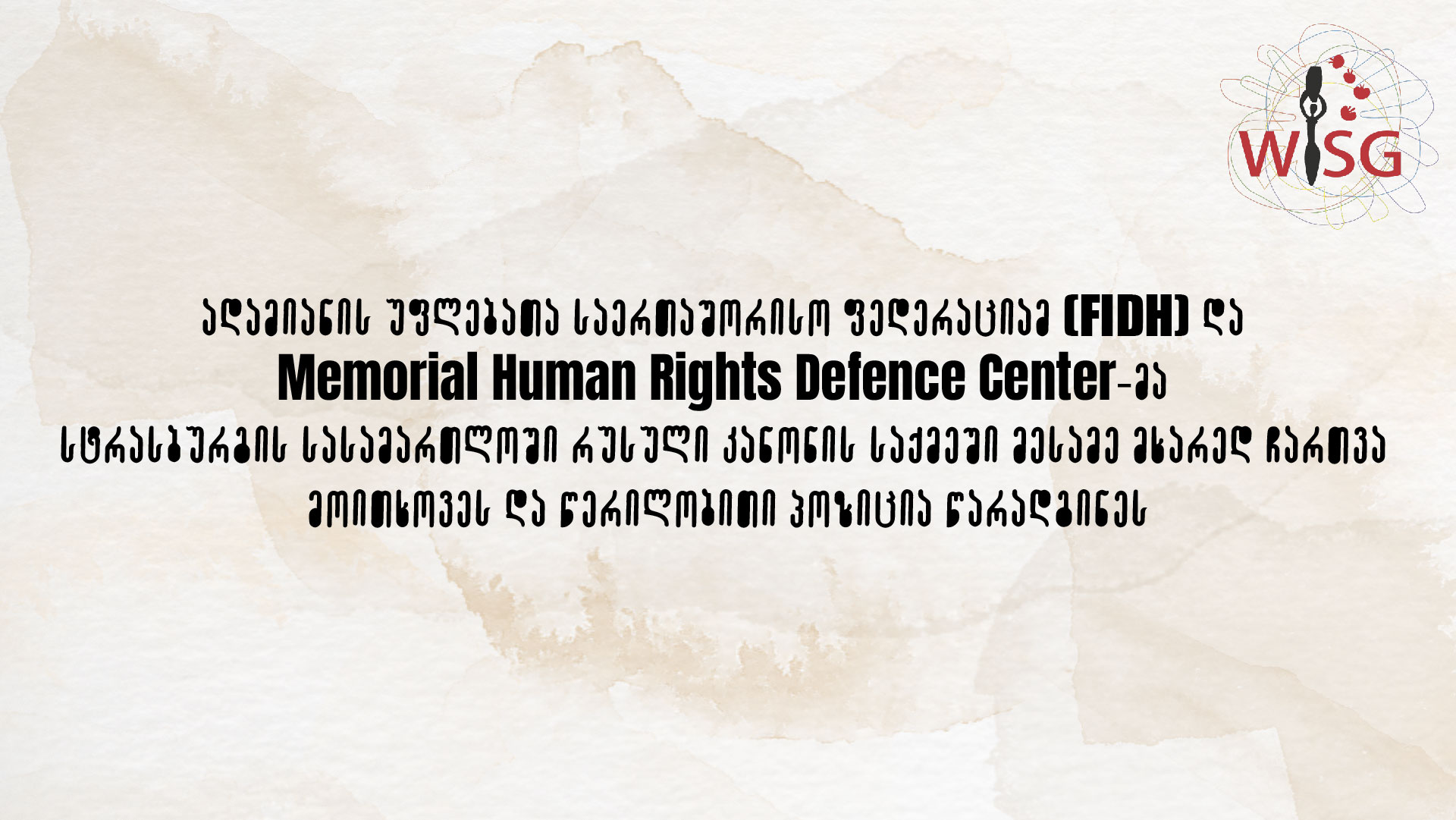The
Georgian authorities continue to fail to implement the European Court's
judgment in the case of "A.D. and Others v. Georgia" concerning the
legal gender recognition of transgender individuals. Five leading human rights organizations revealed This information in a report submitted to the Committee of Ministers of the Council of Europe.
On December 1, 2022, the European Court ruled that Georgia had violated Article
8 of the Convention (right to respect for private life) due to the lack of a
quick, transparent, and accessible procedure for legal gender recognition in
the country. The Court called on the Georgian authorities to develop an
appropriate legislative framework. However, as the report reveals, the authorities
have not taken concrete steps in this direction. On the contrary, in April
2024, the Georgian Parliament initiated legislative initiatives to adopt
discriminatory laws prohibiting legal gender recognition.
The
report provides specific examples of transgender individuals being denied
gender marker changes despite presenting relevant medical documentation. The
LEPL Public Service Development Agency refused to change gender markers because no documentation confirming "biological sex change" was
given.
The human rights organizations urge the Committee of Ministers to insist that the Georgian authorities:
- Immediately withdraw draft laws prohibiting legal gender recognition;
- Present a concrete action plan for adopting a gender recognition law based on the principle of self-determination;
- Ensure that the new procedure is quick, transparent, and accessible, without medical prerequisites;
- Conduct public awareness campaigns to combat discrimination against transgender individuals.
The
authors of the report emphasize that the Georgian government's inaction and the
Parliament's regressive initiatives pose a serious threat to the rights of
transgender individuals and contradict the European Court's decision. The
report also highlights the growing anti-gender and anti-trans rhetoric in
Georgia, with government representatives attending conservative conferences
promoting "traditional values" and opposing LGBTQ+ rights. This
stands in stark contrast to the unified stance of civil society organizations
emphasizing the need to address legal gender recognition.
The
proposed legislative changes, if adopted, would not only prevent the
establishment of the required procedure for legal gender recognition but would
also eliminate the existing, albeit limited, practice of allowing gender marker
changes after gender-affirming surgery. Moreover, the draft law "On
Protection of Family Values and Minors" declares inadmissible any medical
procedure that some trans individuals undergo during the transition process.
This contradicts the Constitution of Georgia and the practice of the European
Court of Human Rights.
The
human rights organizations call on the Committee of Ministers to schedule the
case for examination at the earliest convenience and express serious concern
about the failure to execute the judgment promptly, fully, and effectively.
They also urge the Georgian Government to ensure that LGBTI community
organizations and CSOs with relevant expertise are included in every phase
related to the development or effective implementation of any law or
administrative procedure.
Click here to read the submission







